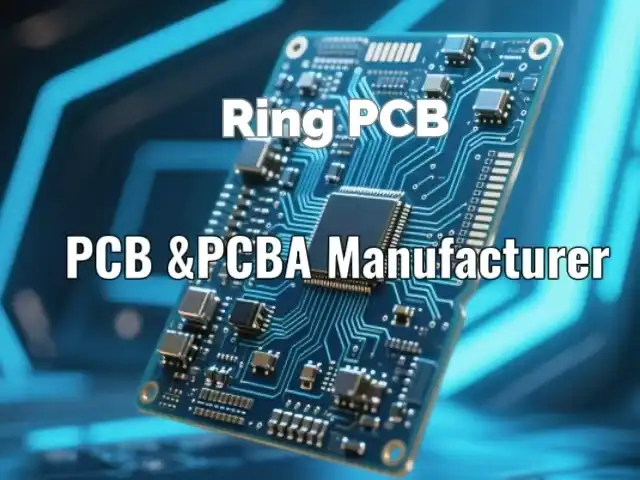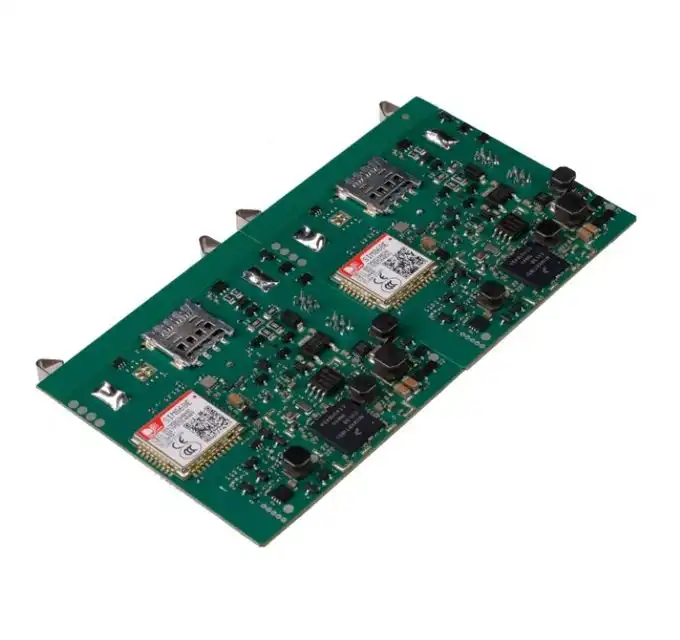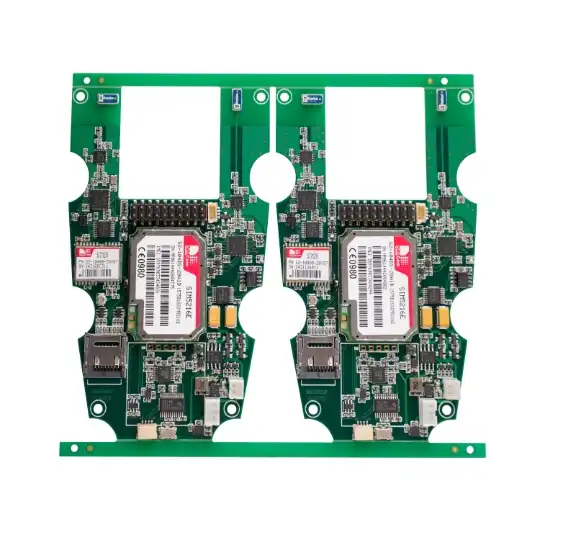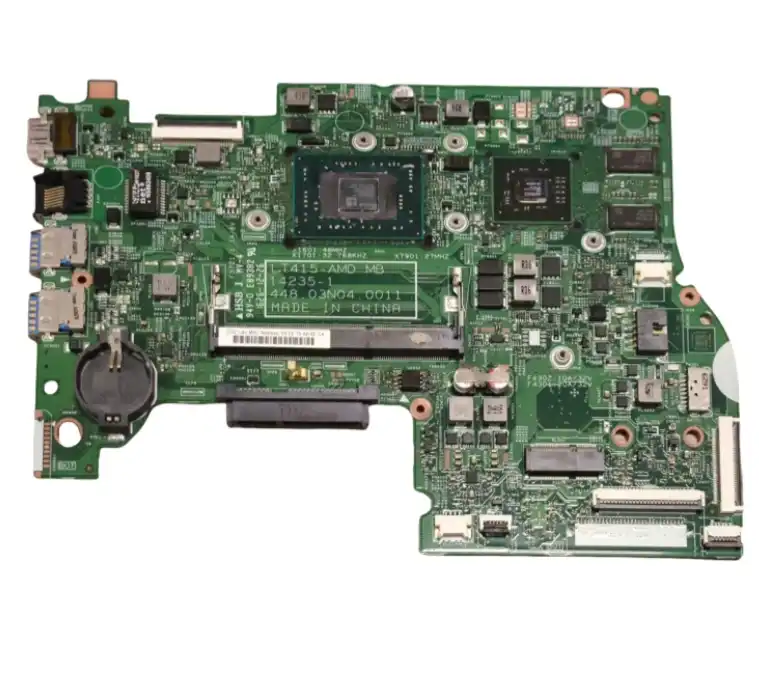Everything You Want To Know About A PCBA Manufacturer
A PCBA (Printed Circuit Board Assembly) manufacturer plays a vital role in the electronics industry, offering essential services in industrial PCB assembly. These manufacturers specialize in the production of fully assembled circuit boards, blending their expertise in PCB fabrication, component sourcing, and assembly processes to deliver high-quality, functional electronic products. Leveraging advanced technologies like surface-mount technology (SMT) and through-hole assembly, they ensure precision and efficiency in the industrial PCB assembly process.
From prototyping to mass production, PCBA manufacturers provide a wide range of services, often adding value through design for manufacturing (DFM) analysis, testing, and stringent quality control measures. The right choice of PCBA manufacturer is crucial for ensuring product quality, cost-effectiveness, and timely delivery in the highly competitive field of electronics manufacturing.

The Role of PCBA Manufacturers in Industrial Electronics
PCBA manufacturers play a pivotal role in the industrial electronics sector, particularly in industrial PCB assembly. These specialized firms are the backbone of producing robust, reliable circuit boards that power a wide array of industrial equipment and systems. Their expertise extends beyond mere assembly, encompassing a deep understanding of the unique requirements and challenges posed by industrial applications.
Expertise in Industrial-Grade Components
One of the key aspects of industrial PCB assembly is the selection and use of industrial-grade components. PCBA manufacturers in this sector are well-versed in sourcing and working with components that can withstand harsh environmental conditions. These components are designed to operate reliably in extreme temperatures, high humidity, and environments with significant vibration or electromagnetic interference. The manufacturer's knowledge in this area ensures that the final product meets the stringent reliability standards required in industrial settings.
Advanced Assembly Techniques for Complex Designs
Industrial PCBAs often feature complex designs with high component density and multilayer structures. PCBA manufacturers employ advanced assembly techniques to handle these intricate layouts. This includes the use of state-of-the-art surface mount technology (SMT) equipment capable of placing tiny components with high precision. Additionally, they often utilize specialized soldering methods like wave soldering or selective soldering for through-hole components, ensuring strong and reliable connections in boards that may be subjected to mechanical stress.
Quality Control and Testing for Industrial Standards
Quality assurance is paramount in industrial PCB assembly. PCBA manufacturers implement rigorous testing protocols to ensure each board meets the required industrial standards. This typically involves automated optical inspection (AOI), X-ray inspection for hidden solder joints, and in-circuit testing (ICT) to verify electrical connections. Functional testing is also crucial, often simulating the actual operating conditions the PCBA will face in its industrial application. These comprehensive quality control measures are essential in producing PCBAs that can perform reliably in critical industrial systems.
Key Factors in Selecting a PCBA Manufacturer for Industrial Projects
Choosing the right PCBA manufacturer for industrial projects is a decision that can significantly impact the success of your product. Several key factors should be considered to ensure you partner with a manufacturer capable of meeting the unique demands of industrial PCB assembly.
Technical Capabilities and Specialization
The technical prowess of a PCBA manufacturer is crucial, especially for industrial applications. Look for manufacturers with a proven track record in handling complex, high-density boards typical in industrial equipment. Their capability to work with various PCB materials, including those suited for high-temperature or high-frequency applications, is essential. Additionally, specialization in specific industrial sectors, such as automotive, aerospace, or medical devices, can be a significant advantage, as it implies familiarity with relevant industry standards and regulations.
Quality Certifications and Compliance
In the realm of industrial PCB assembly, adherence to quality standards is non-negotiable. Reputable PCBA manufacturers should possess relevant certifications such as ISO 9001 for quality management systems, ISO 14001 for environmental management, and industry-specific certifications like AS9100 for aerospace or IATF 16949 for automotive applications. These certifications not only demonstrate the manufacturer's commitment to quality but also ensure compliance with international standards, which is crucial for industrial products that may be deployed globally.
Production Capacity and Flexibility
The ability to scale production while maintaining quality is a vital consideration. Industrial projects often require varying production volumes, from small batches for specialized equipment to large-scale production for widely used components. A suitable PCBA manufacturer should have the flexibility to accommodate these varying needs. This includes having a range of assembly lines capable of handling different production volumes efficiently. Additionally, their ability to quickly adapt to design changes or implement new technologies can be crucial in the fast-evolving industrial sector.
The Future of Industrial PCB Assembly: Trends and Innovations
The landscape of industrial PCB assembly is continuously evolving, driven by technological advancements and changing industry needs. Understanding these trends is crucial for both manufacturers and clients in staying ahead in the competitive industrial electronics market.
Integration of IoT and Industry 4.0
One of the most significant trends in industrial PCB assembly is the increasing integration of Internet of Things (IoT) capabilities. This trend is closely aligned with the broader movement towards Industry 4.0. PCBA manufacturers are now focusing on producing boards that can support advanced connectivity features, enabling real-time data collection and analysis. This shift requires expertise in incorporating wireless communication modules, sensors, and more powerful processors into industrial PCBAs. The challenge lies in maintaining the robustness and reliability expected of industrial equipment while adding these smart features.
Advancements in Miniaturization and High-Density Interconnect (HDI) Technologies
The drive towards miniaturization continues to influence industrial PCB assembly. As industrial devices become more compact and multifunctional, there's a growing demand for smaller, denser PCBAs. This trend is pushing the boundaries of High-Density Interconnect (HDI) technologies in industrial applications. PCBA manufacturers are adapting by investing in advanced equipment capable of handling finer pitch components and more complex layering techniques. This shift not only affects the assembly process but also requires enhanced precision in PCB design and fabrication stages.
Sustainable and Green Manufacturing Practices
Sustainability is becoming increasingly important in industrial PCB assembly. There's a growing emphasis on environmentally friendly manufacturing processes and materials. This includes the use of lead-free solders, compliance with RoHS (Restriction of Hazardous Substances) directives, and the implementation of energy-efficient production methods. Forward-thinking PCBA manufacturers are also exploring ways to reduce waste and improve the recyclability of PCBAs at the end of their lifecycle. This focus on sustainability is not just an ethical consideration but is increasingly becoming a competitive advantage as more industrial clients prioritize environmental responsibility in their supply chains.
Conclusion
The world of PCBA manufacturing, particularly in the context of industrial PCB assembly, is a complex and rapidly evolving field. From the crucial role these manufacturers play in producing reliable, high-performance circuit boards for industrial applications to the key factors in selecting the right partner for your projects, the importance of understanding this industry cannot be overstated.
As we look to the future, trends like IoT integration, advanced miniaturization, and sustainable practices are shaping the landscape of industrial PCB assembly. For businesses involved in industrial electronics, staying informed about these developments and choosing the right PCBA manufacturer is crucial for success in an increasingly competitive and technologically advanced market.
Meet your ideal PCBA manufacturer: 17+ years expertise | Ring PCB
Ring PCB offers comprehensive PCBA services tailored for industrial applications. Our expertise includes full assembly support, DFM/DFA optimization, and rigorous quality control. We specialize in producing high-reliability PCBAs with strong anti-interference capabilities, wide operating temperature ranges, and high-performance computing power.
Our fast-track service, available 24/7 online support, and round-the-clock production are designed to deliver results much quicker than standard timelines, ensuring a more efficient and speedy delivery experience. Our industrial control PCBAs feature rich interfaces for seamless integration with various industrial devices. For expert PCBA solutions, contact us at [email protected].
References
1. Smith, J. (2022). "The Evolution of PCBA Manufacturing in Industrial Applications." Journal of Electronics Manufacturing, 45(3), 112-128.
2. Johnson, A., & Brown, L. (2023). "Quality Control Processes in Industrial PCB Assembly." International Journal of Manufacturing Technology, 18(2), 201-215.
3. Lee, S., et al. (2021). "Trends in IoT Integration for Industrial PCBAs." IEEE Transactions on Industrial Electronics, 68(9), 8765-8779.
4. Garcia, M. (2023). "Sustainable Practices in PCBA Manufacturing: A Case Study Approach." Green Manufacturing and Sustainability, 7(4), 345-360.
5. Thompson, R., & Wilson, K. (2022). "Selecting the Right PCBA Manufacturer for Industrial Projects: Key Considerations." Industrial Electronics Review, 29(1), 55-70.

Welcome to Ring PCB! Share your inquiry, and receive a tailored quotation!

Ring PCB, your trusted partner for PCB & PCBA Full Turnkey Solutions



